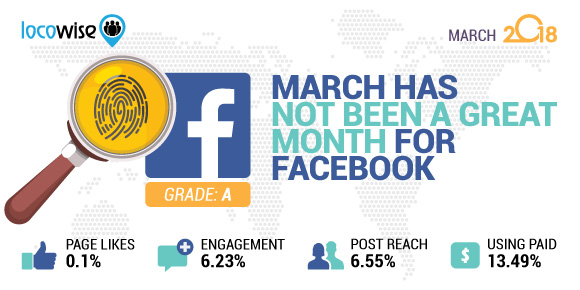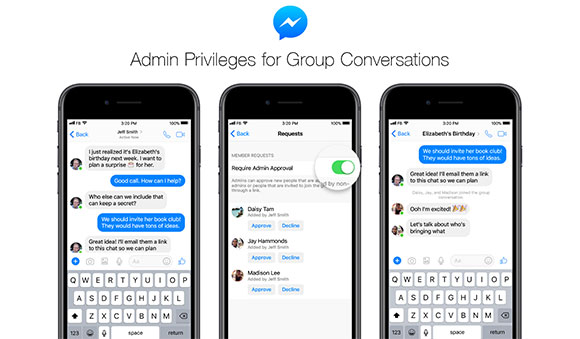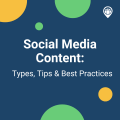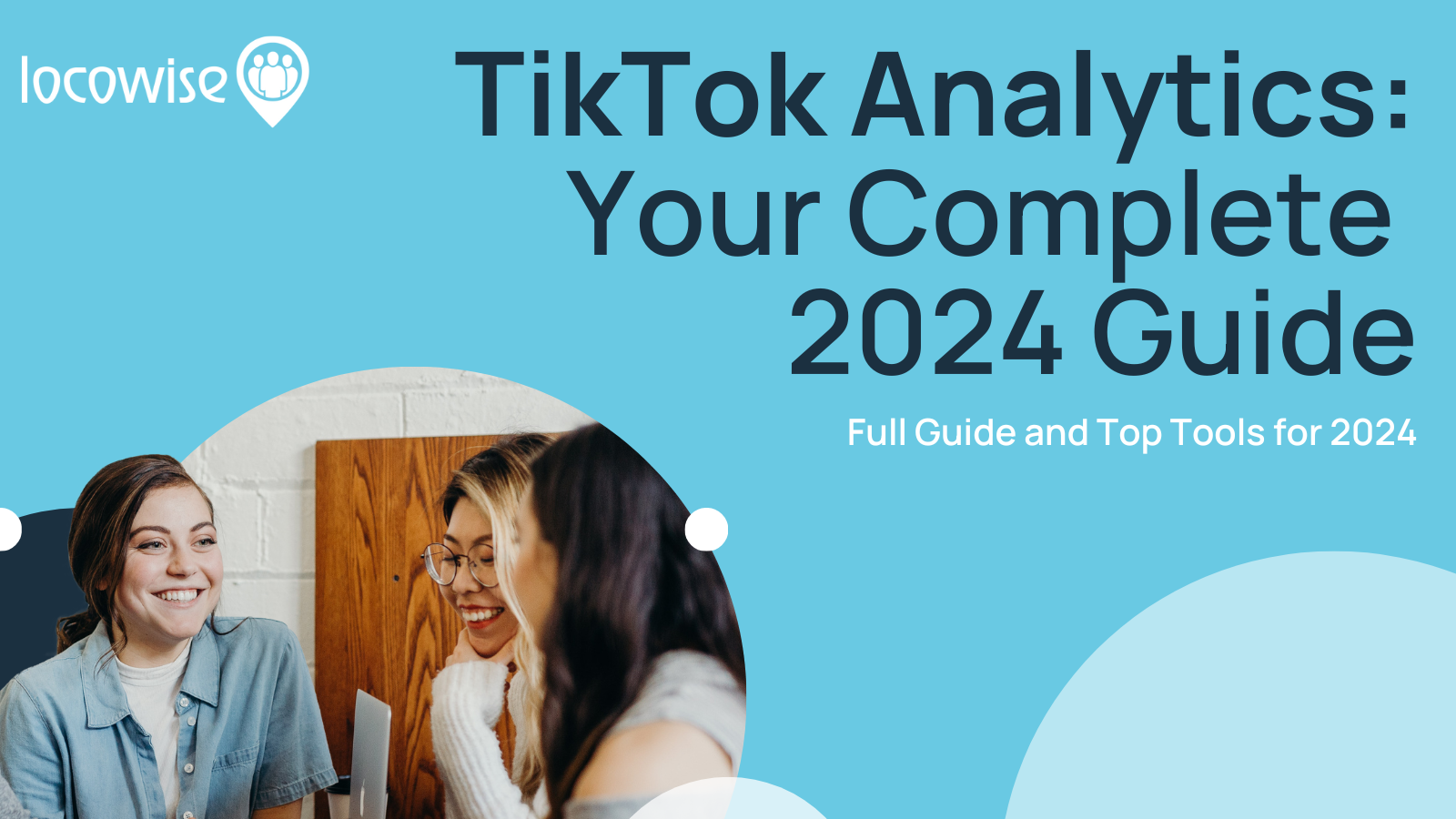March Has Not Been A Great Month For Facebook
Sahail Ashraf posted on 18 April 2018
March for Facebook wasn’t exactly a walk in the park. The trust that Facebook has built its future on seemed to take a huge dive when the Cambridge Analytica thing broke. And because it was such a huge part of what happened to the company in March, we’re going to focus on that first.
But before we jump into that…
We’ve introduced a new grade card feature to measure the health of reach and engagement for Facebook pages. We use our own judgement for three categories of metrics: reach, growth and engagement. The three areas are graded and then the platform receives a final, aggregate grade.

Reach
Reach in March was at 6.55% compared to 6.38% back in February.
Photo reach was 6.31% against the 6.46% in February. Links and their reach was 6.71% against February’s 6.46%. Video reach was at 6.92%, a huge leap up from February’s 6.02%. And when it comes to status update reach, that came up as 5.32%, a respectable climb up from February at 5.13%.
Grade: A
Engagement
Post engagement for February stood at 6.23%, which was an amazing leap up from the 5.75% in February.
Videos on the platform engaged 7.61% of the people reached. Back in February, it was 7.49%. Photo engagement in March was at 5.74%. February gave just 5.22%. Link engagement was 5.28% compared to February’s 4.73%. Status update engagement was 5.19% compared to the 4.42% in February.
Grade: A+
Growth
Facebook page fans growth was at 0.1%, up against February’s 0.08%. 13.49% of pages used paid ads, back in February it was 12.73%. Paid reach was at 40.69% of the total reach, compared to the 37.02% in February.
Grade: A
Overall grade: A
Cambridge Analytica
We won’t go into too much detail on the Cambridge Analytica story. Needless to say, some very bad things were done (and in the light of recent news, even more evidence is on its way) and Facebook was linked to the unsavoury practice of Cambridge Analytica.
The data of millions of Facebook users were used as part of the US election process. But not in a good way. And Mark Zuckerberg is now looking at a world of trouble.
How bad is it? Well, he is being called to testify before the US House Commerce Committee, and he has stated that the data of nearly 90 million users had been compromised. What’s perhaps even worse is the fact that Facebook knew that 50 million users were affected long before the Cambridge story broke.
How this all plays out remains to be seen. Facebook is cooperating fully with the investigation. But we anticipate a refresh of online privacy is on its way.
Texts and stuff
As if to try and hammer that point home, Facebook released an interesting piece of news in March. Many users and a number of sounding boards in the media have complained that Facebook logs the calls and texts for a user, but some were concerned that this was ‘non-negotiable’, and that their data was being ‘farmed’.
Facebook did a ‘fact check’ for all users, and made it clear that there was always an opportunity to opt out of allowing Facebook to have the phone numbers of every single person you know. But the message at the bottom of the press release was almost identical to the message Zuckerberg was giving to the media about the Cambridge Analytics thing:
This feature does not collect the content of your calls or text messages. Your information is securely stored and we do not sell this information to third parties. You are always in control of the information you share with Facebook.
So that’s all well and good then.
Group chat became a little more interesting
If there is one thing that Facebook has done right, it’s group chat on Messenger. Staggeringly, the group chat function on Messenger can accommodate up to 250 participants. With those numbers in mind, Facebook offered more control to users in March.
Users can now have admins for chats, which allows them to control precisely who gets involved. This can be done in one of two ways basically. The admin for a group can individually approve new members, or they can take the admin permissions feature off. Again, this seems to be another example of Facebook trying to be nice to its users.
Even more interesting is the ability to promote or demote members of a chat. Admins now have this power at their fingertips, and it’s obviously a way for admins to keep things pleasant, or to prevent things from becoming unpleasant in the first place.
So, in a month where nearly 100 million Facebook users lost control of their account data, Facebook offered more control in group chat.
Chatting made easier
Towards the beginning of March, Facebook announced that it was making it a whole lot easier for users to add participants calls and video chats on Messenger. While this may not sound too groundbreaking, the ease of use was immediately apparent.
All users have to do is tap the screen when they want to add someone new to a conversation. Then a list of contacts comes up and you simply choose who you want to add. It’s incredibly simple, but what’s even more incredible is the absence of such an easy way to add people prior to this.
Creators and advertisers
Creators have been blessed, it seems. Facebook has decided to offer them a ton of new features that will roll out over the next few months. One of these is particularly intriguing.
Monetisation has long been a goal to aim for when it comes to people who create videos and other elements on Facebook. Now Facebook has said that fans can show their support for creators by making donations. In addition, they’re simply making it easier for creators to monitor the effectiveness of their content.
It’s a win-win for Facebook because it now gets more involvement from audiences via the creators. The creators are becoming expert at creating content that brings in more eyeballs. And more eyeballs means more ad opportunities for Facebook.
If you’d like to get your hands on some amazing metrics that tell you all you need to know about your clients and their position on social, take out a free 7-day trial of Locowise now.





